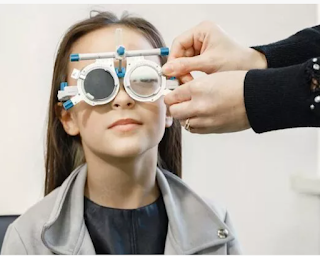Why is it important to go for routine eye examinations?
Eye exams are important to maintain healthy eyes. Unfortunately, when it comes to scheduling health appointments, eye examinations are often ignored. Many people assume that it’s a basic vision screening test. But, seeing highly skilled and experienced eye care physicians in NJ can perform a comprehensive eye exam and help you stay on top of your eye health.
Continue reading this blog and know the difference between a vision screening and an eye exam; and why it is important to have routine eye examinations!
Vision Screenings
Screenings are inexpensive and quick tests. It can be performed by volunteers, nurses, or eye care healthcare professionals. In screenings, you will be checked for any vision problems. You will be asked to identify tiers of letters placed 20 feet away from you. If you test lower than a 20/40 level, they will refer you to eye care physicians in NJ for medical treatment.
Eye Examinations
Comprehensive eye exams are performed by eye care specialists. The exam also includes a vision screening test in addition to a series of other tests that helps evaluate your eyes' health. An ophthalmologist will examine each eye for the warning signs of any serious eye issue. He can check if you are suffering from any eye problems, such as glaucoma, cataracts, macular degeneration, detached retinas, or other eye conditions. Getting routine eye exams can help you know your eye health condition. As a result, you can get the necessary eye treatment on time if needed.
When to go for an eye exam?
Generally, it is best for people between 20-30 years of age to go for an eye exam every 5-10 years. And if you are above 40-55 years, you can consider scheduling an appointment with your eye doctor every 1-2 years for eye examinations. However, if you are 55 plus, you should go to New Jersey specialty eye care at least once a year.
Those who are suffering from any of the following conditions are exceptions to these recommendations.
Having any serious vision problems
Wearing contact or corrective lenses
Having a family history of eye conditions
Having a chronic health condition related to the risk of eye problems.
Benefits of routine eye exams
A well-experienced eye doctor will use your eye examination report to learn about your overall health. Regular eye exams can help detect significant health problems. As a result, you can get the best treatment for your health conditions on time. Close evaluation of blood vessels in your eyes may even help diagnose the following health issues-
Diabetic retinopathy- If the blood vessels in the retina of the eyes leak blood or yellow fluid, you might be suffering from diabetic retinopathy.
Hypertension- If your doctor observes tears or bends in blood vessels present in your eyes, chances are it could be due to high blood pressure.
High cholesterol- A yellow ring around your cornea may indicate high cholesterol.
Thyroid disease- Bulging or protruding eyeballs may indicate you have thyroid problems.
Autoimmune disorders- Eye inflammation is a vital sign of autoimmune disorders—for example- lupus.
Tumors- Abnormally shaped pupils or droopy eyelids may hint toward a neck tumor.
Regardless of how good your eyesight is, visiting eye care physicians in NJ regularly for an eye examination is a great way to maintain not only the perfect functioning of your eyes but also to boost overall health.



Comments
Post a Comment